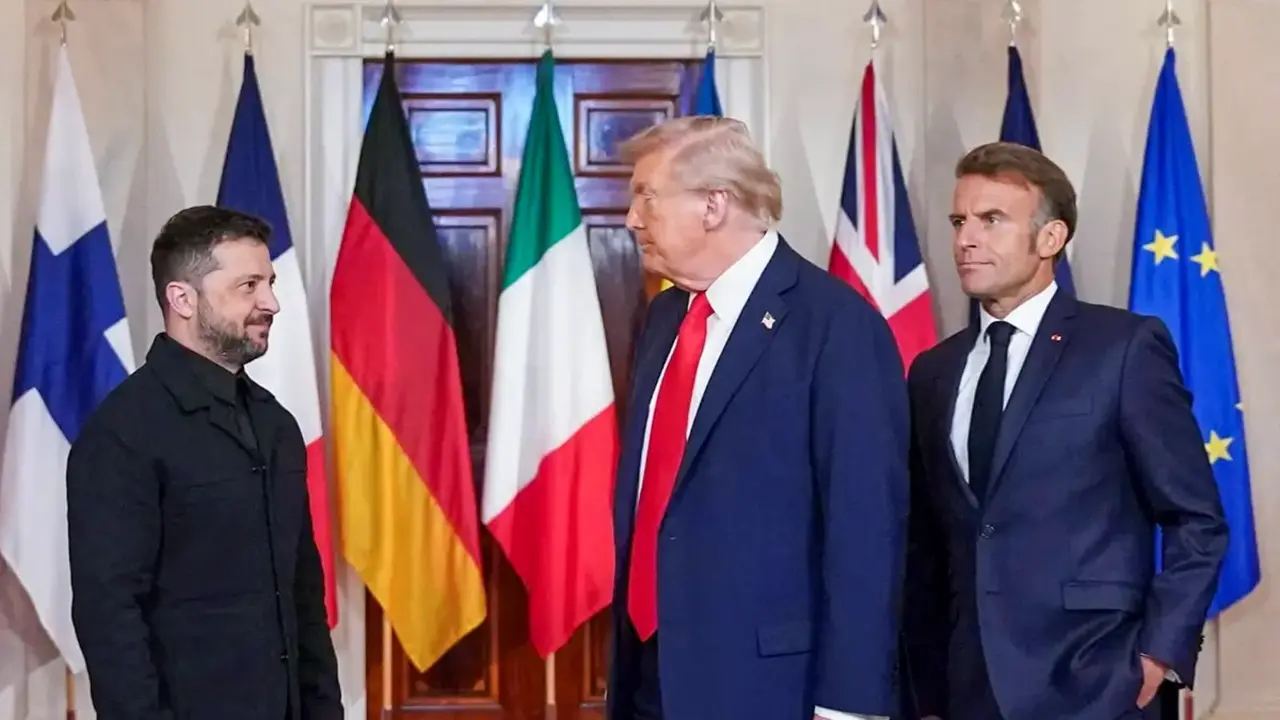Austria publishes a report on the influence and funding of the Muslim Brotherhood in Europe

Although the Muslim Brotherhood has lost influence in some Arab countries such as Morocco and Tunisia, it continues to expand its networks in Europe. The Islamist organisation, which originated in Egypt in 1928, began over the years to spread its tentacles to other Middle Eastern countries and, in the 1960s and 1980s, to the Old Continent. The Muslim Brotherhood founded the Islamic Centre of Munich in 1960, headed by Said Ramadan, son-in-law of the organisation's founder, Hassan al-Banna. This organisation served to spread the Brotherhood's ideas throughout Europe.
Today, the organisation is present in almost all European countries. As the latest report of the Political Islam Documentation Centre explains, "today, all major European countries host a small network of individuals and organisations more or less linked to the Muslim Brotherhood. Moreover, this Austrian-based institution dedicated to scientific research on political Islam has uncovered the structural system of the Muslim Brotherhood in Europe and the origins of its funding.

The Centre for Documentation of Political Islam was established by the Austrian government in 2020 to track and analyse the movements of the Brotherhood and other Islamist organisations. The centre is also looking for ways to combat them.
In almost 200 pages, Lorenzo Vidino, an Italian expert on Islamism, and Sergio Altuna, a Spanish researcher on radicalisation and terrorism at the Elcano Royal Institute, reveal details of the Brotherhood's presence in Europe in recent decades. The report is divided into four parts, one of which is devoted exclusively to the Brotherhood's presence in 11 European countries, including Belgium, France, Spain, Italy and the Netherlands. Despite the differences between each nation, all countries share certain characteristics.

As the report notes, the Brotherhood's presence on the continent was driven by Middle Eastern students at European universities and by some high-ranking members of the organisation. "What began as an unexpected and temporary presence in Europe has over time become established and expanded significantly," say the experts.
In the shadow of the Muslim Brotherhood, many public organisations have been created with the aim of seeking support and representation. Among these organisations, the report highlights the Federation of Islamic Organisations in Europe (FIOE), created in 1989 and based in Brussels. In 2020 it changed its name to the Council of European Muslims and, in turn, created two other bodies: the European Institute of Human Sciences and the European Fatwa Centre. On the other side is the International Islamic Relief Organisation, Islamic Relief, which, despite denying any connection to the Brotherhood, the document states that it is "close" to the entity.

"Organisations belonging to the Brotherhood in different countries regularly collect donations and promote Islamic Relief", while "individuals belonging to the Brotherhood often run local branches of the organisation". The report also notes that the Muslim Brotherhood spreads its message through its vast network of mosques, charities, schools, lobbies, and civil rights groups.
"One of the main reasons for the Muslim Brotherhood's relative success is its access to ample financial resources," the report reveals. However, while the experts admit that the funding dynamics are "complex and difficult to penetrate", they have identified four categories as the main sources of funding.

First, donations from the Muslim community. Secondly, the group's own financial activities. The researchers explain that the Brotherhood has long developed a network of businesses, some of which focus on Islam-related activities, such as the certification of halal meat or the sale of religious publications. However, there are other types of business that have nothing to do with religion, such as real estate or financial services.
Subsequently, the report outlines several countries that financially support the organisation, such as Qatar and, to a lesser extent, Kuwait. It also highlights the "important role of Turkey in recent years". However, the experts recall that foreign donations have "historically come from virtually all Arab Gulf countries".

Finally, and possibly the most controversial category, it refers to "subsidies from European governments and the European Union". The report explains that Brotherhood-linked organisations receive public funds to develop activities that seek integration or fight Islamophobia. "In some cases, Brotherhood-linked charities also act as contractors for European government aid agencies carrying out projects in regions of Africa or the Middle East," it explains.
Why is the Muslim Brotherhood seeking to strengthen its presence in Europe? According to the Austrian centre, the Brotherhood is reportedly seeking to spread its socio-political-religious vision to European Muslim communities by promoting Islamic identity. Likewise, the Islamist organisation aspires to become the official representative of Muslim communities, as well as to influence policies on all matters related to Islam.

However, although the organisation sometimes presents itself as a moderate religious actor, the report warns that the Muslim Brotherhood's ideology is at odds with the ideas of freedom promoted by some European leaders. Experts have documented some problematic views, such as anti-Semitism, homophobia, and misogyny. Furthermore, the "us against them" discourse presented by the Brotherhood does not promote the integration of Muslim communities in Europe.
As conclusions and recommendations, the report presents several ideas that can combat Islamism, most notably the suspension of funding. "European public actors should stop providing funding to Brotherhood organisations," it stresses.

In this regard, Susanne Raab, Austrian Integration Minister and initiator of the Documentation Centre for Political Islam, met with EU partners in Vienna to discuss measures to combat Islamism on the continent and other issues related to the recent report. "Islamism and terrorism do not start when they become violent, they start much earlier," Raab said. She said Vienna should establish itself as a "centre of competence against political Islam".








